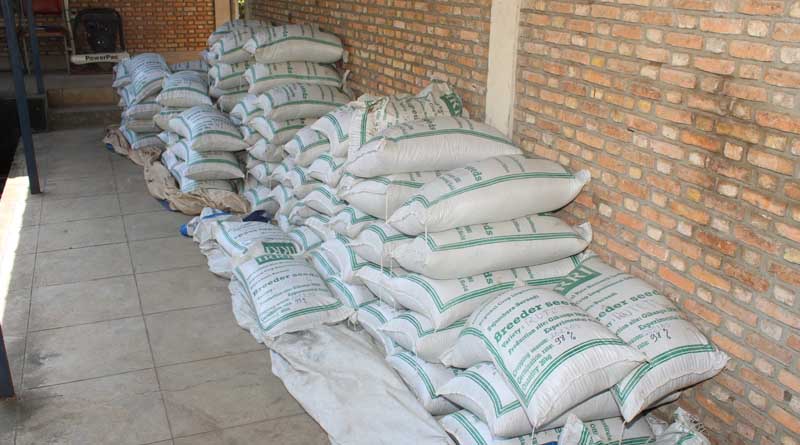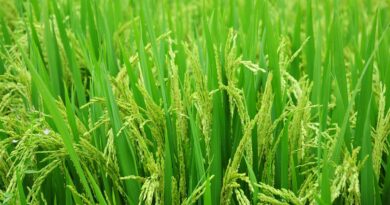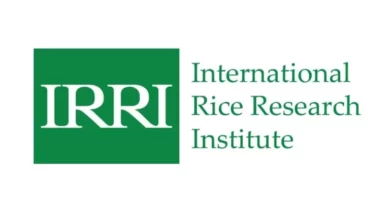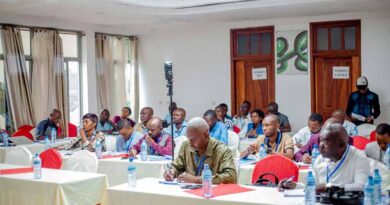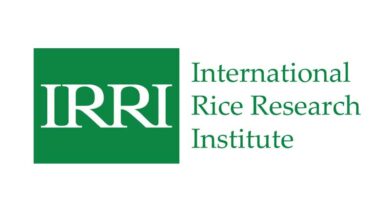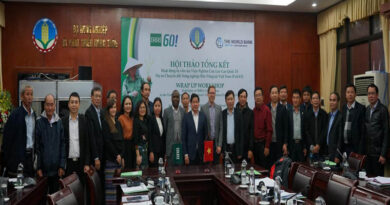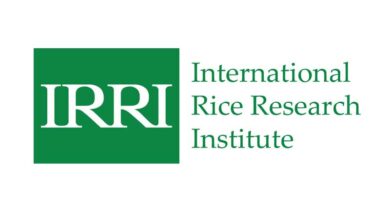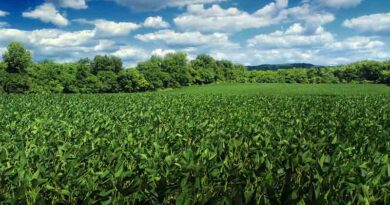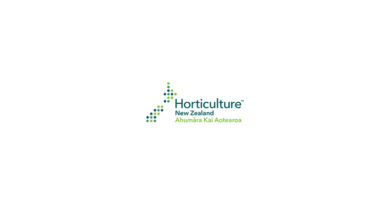IRRI and ISABU join efforts in revolutionizing rice farming by availing good quality rice seeds
22 February 2024, Burundi: The Burundi office of the International Rice Research Institute (IRRI) and the Institute of Agronomic Sciences of Burundi (ISABU) are jointly working to achieve one of the Great Lakes Accelerated Innovation Delivery Initiative, Rapid Delivery Hub (AID-I GRL) projects’ goals, which is providing high-quality rice seeds to rice farmers and seed producers in Burundi. This partnership is taking significant steps towards promoting sustainable agriculture in Burundi.
Under the agreement between IRRI and ISABU, the latter has been tasked with producing early-generation seeds. The rice seeds produced by ISABU and supported by IRRI, have been made available to scaling partners the Association of Cooperation and Research for Development (ACORD) and the Confederation of Agricultural Producers’ Associations for Development (CAPAD) last 19 December 2023. They have been urged to inform registered seed producers about the availability of the seeds and where they can be obtained.
The partnership between IRRI and its implementing partners is essential in improving the lives of farmers. All operators working on the rice value chain have been brought together for the same objective, which is to improve the lives of farmers. “This partnership will enable the stakeholders in action to strengthen mutually and eradicate ground weaknesses of production and use of poor rice seeds” emphasized Dr. Samson Musonerimana, Research Support Director at ISABU.
The International Institute of Tropical Agriculture (IITA) Monitoring and Evaluation Officer Saïdi Bizoza expressed their appreciation of IRRI’s contribution, such as the innovations and technologies it provides to technicians from the scaling partners. In addition, IRRI provides technical supervision to the latter’s activities in disseminating their acquisition to project beneficiaries. IRRI’s implementing partners would “ensure that the innovations and technologies acquired from IRRI have been passed on to rice seed producers and ensure their sustainability,” recommended Mr. Saïdi Bizoza.
IRRI researcher Ménédore Ndagijimana highlighted the importance of cooperation, saying, “One of the keys to success in any partnership is effective collaboration through good communication. It is great that the scaling partners are responsible for disseminating technologies to farmers and seed producers.”
The partnership between IRRI and ISABU has resulted in the production of 1340 kilograms of rice seeds for the varieties released under irrigated lowland ecology. These include IR79511-47-2-6-5 (Gwizumwimbu), 80kg; IR87546-84-3-3-2 (Kazosi), 100 kg; IR05N221 (Komboka), 90 kg; IR91028-115-2-2-2-1 (Mugwiza), 500 kg; BR11 sub 1 (IR85260-148) (Musaruro), 80kg; IR13A256 (Musesekara), 100kg; and IR 107015-18-3-1-B (Rutete), 80kg; and high elevation ecology including FACAGRO 904, 10 kg; L662-3-9 (Kigingi), 180 kg; V1380-4, 30kg; and Scrid006-2-4-2-3, 90 kg.
Mr. Jean-Claude Bacinoni of CAPAD, one of the scaling partners, shared his views on the support provided by IRRI to their technicians about rice cultivation techniques. “I must say that the training programs provided by IRRI to our technicians on new technologies in the rice cultivation techniques have been invaluable.” Mr. Bacinoni also shares that IRRI trained their technicians to set up a business plan to help farmers increase profits by improving crop yields and reducing production costs. Through this, CAPAD’s technicians have gained a better understanding of the latest tools and techniques through the training programs.
He also provided specific recommendations to their esteemed partners, including IRRI, ISABU, and IITA, to enhance the effectiveness and efficiency of their collaborative efforts. “It would be a good idea for IRRI to continue providing its support and expertise to the scaling partners’ technicians to ensure that their rice fields are treated optimally,” stated Mr. Bacinoni. “Alone we can do so little; together we can do so much.” Registered rice producers who will benefit from good rice seeds from ISABU are recommended to follow all the technical steps to maintain a steady supply of high-quality seeds to rice farmers.
Finally, IITA was requested to explore the possibility of securing additional funding to expand the project’s scope beyond rice, to cover other provinces where the project has not yet been initiated. This would be a great opportunity to extend the project’s positive impact and support more communities.
The partnership between IRRI and its implementing partners is vital in providing good-quality rice seeds to Burundi’s farmers. The stakeholders and scaling partners are convinced that their joint efforts continue to strengthen their partnership and that the technologies acquired from IRRI in this project are being sustained.
Also Read: Banana exports from India to touch US$ 1 Billion: APEDA
(For Latest Agriculture News & Updates, follow Krishak Jagat on Google News)

